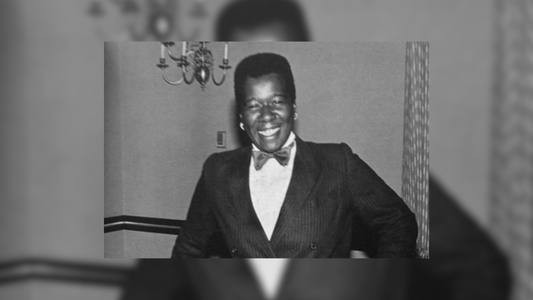Presidential elections are pivotal moments in the democratic process, shaping the future direction of a country and impacting the lives of its citizens. Preparing for a presidential election involves more than just casting a vote; it requires understanding the candidates, the issues at stake, and the logistics of voting. This blog post will provide a comprehensive guide to help you prepare effectively for an upcoming presidential election, ensuring that you are informed and ready to make your voice heard.
1. Understand the Election Timeline
Knowing the key dates and deadlines is crucial for effective preparation. Here’s a general timeline to keep in mind:
a. Election Date:
Mark the official Election Day on your calendar. In the United States, presidential elections are held on the first Tuesday after the first Monday in November every four years.
b. Voter Registration Deadlines:
Check your state’s deadline for voter registration. Many states have specific cut-off dates before Election Day, while others allow same-day registration.
c. Early Voting and Absentee Voting:
Find out the start and end dates for early voting and absentee voting in your state. Early voting allows you to cast your ballot in person before Election Day, while absentee voting enables you to vote by mail if you cannot be present on Election Day.
2. Register to Vote
Ensure that you are registered to vote and that your registration is up-to-date. Here’s how:
a. Check Your Registration Status:
Visit your state’s election website or use online tools like Vote.org or the Election Assistance Commission’s website to verify your registration status.
b. Register or Update Your Information:
If you are not registered, or if you’ve moved or changed your name, complete a voter registration form. This can often be done online, by mail, or in person at designated locations such as DMV offices or public libraries.
c. Verify Your Registration:
Once registered, confirm that your information is correct, including your address and party affiliation (if applicable).
3. Research the Candidates and Issues
Making an informed decision requires understanding the candidates and the key issues of the election:
a. Candidate Information:
Research the presidential candidates’ backgrounds, policies, and platforms. Read their official campaign websites, watch debates, and review reputable news sources for in-depth analyses.
b. Key Issues:
Identify the major issues on the ballot, such as healthcare, education, the economy, and foreign policy. Consider how each candidate’s stance on these issues aligns with your values and priorities.
c. Fact-Checking:
Verify the accuracy of the information you encounter. Use fact-checking websites like FactCheck.org or Snopes to assess the validity of claims and statements made by candidates and their supporters.
4. Understand the Voting Process
Familiarize yourself with the voting process in your state to ensure a smooth experience:
a. Voting Methods:
Determine the voting methods available to you, such as in-person voting, early voting, absentee voting, or mail-in ballots. Each method has different procedures and deadlines.
b. Polling Locations:
If you plan to vote in person, find your designated polling place. You can often locate this information on your state or local election website.
c. Identification Requirements:
Check if your state requires specific forms of identification to vote. Some states have strict ID laws, while others do not require ID or accept a wide range of documents.
d. Voting Procedures:
Understand the procedures for casting your ballot, whether you’re voting in person or by mail. Follow all instructions carefully to ensure your vote is counted.
5. Engage in the Election Process
Active participation in the election process can enhance your impact and help you stay informed:
a. Attend Candidate Events:
If possible, attend rallies, town halls, and debates to hear directly from the candidates and ask questions.
b. Volunteer or Get Involved:
Consider volunteering for a campaign or participating in voter outreach efforts. Helping with voter registration drives, canvassing, or phone banking can contribute to a more informed electorate and a successful election.
c. Educate Others:
Share information with friends and family to encourage informed voting. Engaging in discussions about the election and its issues can help spread awareness and foster a more engaged community.
6. Prepare for Election Day
Ensure you are ready for Election Day with these final steps:
a. Plan Your Voting Strategy:
Decide when and where you will vote. If voting in person, plan your transportation and allow extra time to account for potential lines.
b. Review Your Ballot:
Review sample ballots, if available, to familiarize yourself with the candidates and issues. This will help you make informed decisions and expedite the voting process.
c. Double-Check Requirements:
Confirm any last-minute details, such as identification requirements or polling place hours, to avoid surprises on Election Day.
d. Stay Informed:
Keep an eye on any updates or changes related to the election, such as changes in polling locations or voting procedures.
7. After the Election
Once the election is over, continue to stay engaged with the political process:
a. Follow the Results:
Stay informed about the election results and any subsequent developments.
b. Participate in Post-Election Activities:
Engage in discussions about the election outcomes and participate in local or national initiatives that align with your interests and values.
c. Hold Elected Officials Accountable:
Monitor the actions of elected officials and advocate for policies that reflect your priorities and concerns.
Conclusion
Preparing for a presidential election is a crucial part of participating in the democratic process. By understanding the election timeline, registering to vote, researching candidates and issues, and familiarizing yourself with the voting process, you can ensure that your voice is heard and your vote is counted. Engaging actively in the election process and staying informed can make a significant difference in the outcome and the future direction of your country. As we approach each election, let us embrace our civic duty and work towards a more informed and engaged electorate.




